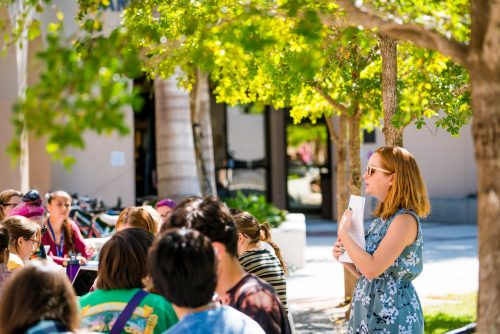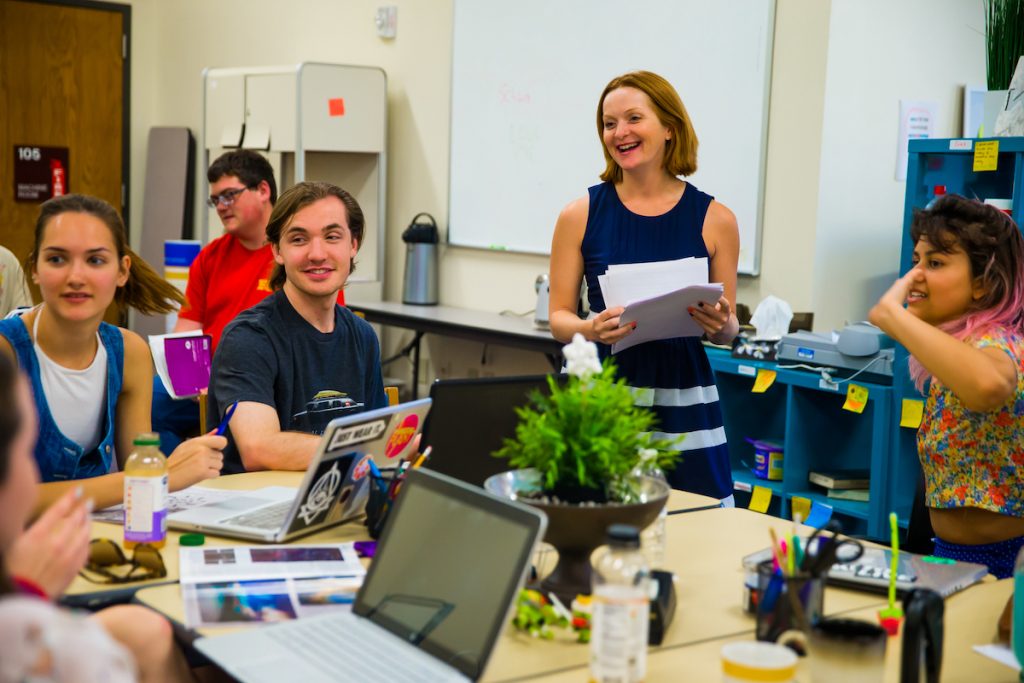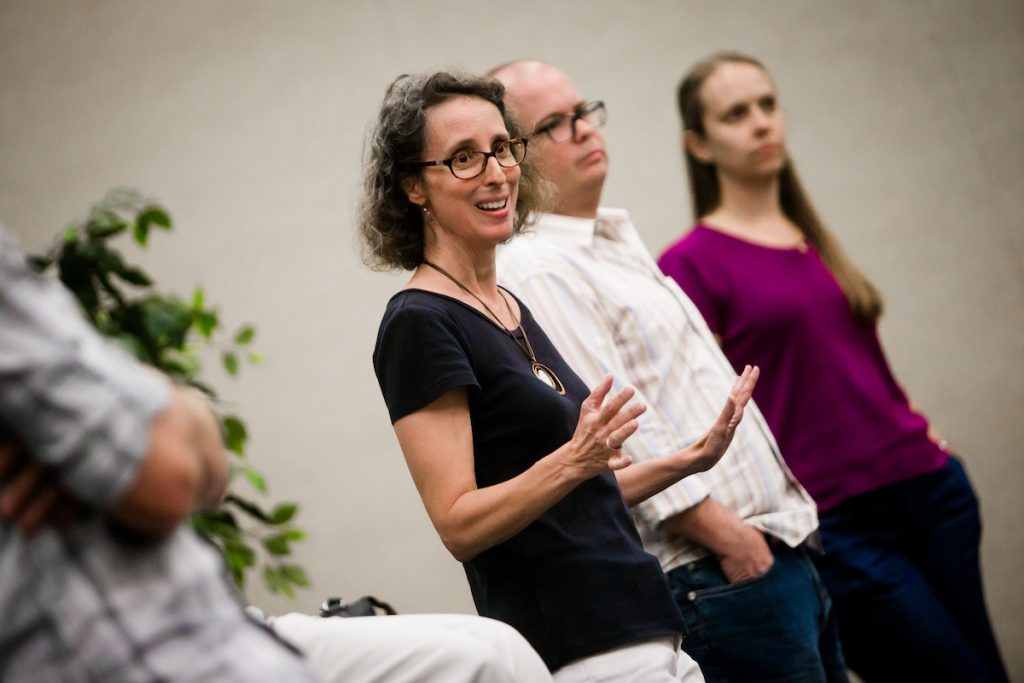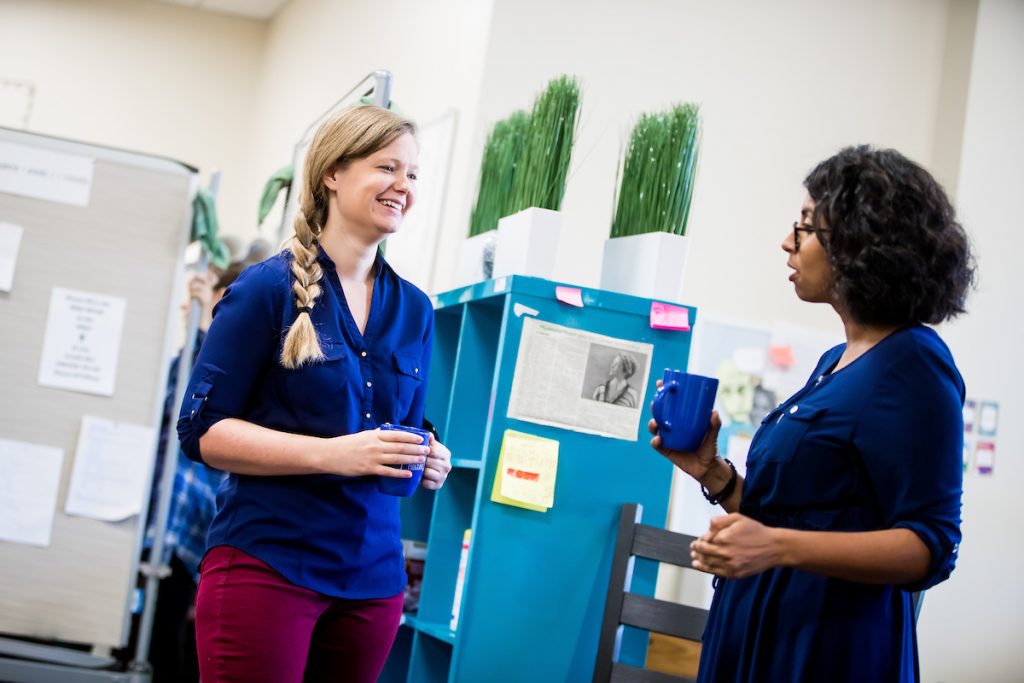
Why study writing at New College? New College Students write… a LOT!
At New College you’ll find yourself challenged to produce all different kinds of writing, from literature reviews and lab reports to longer research or persuasive papers. However, we don’t expect you to be a flawless writer when you first step foot on campus. Rather, we will work with you to help you transfer your knowledge of reading and writing from high school to your first year, from your previous institution to ours, from your New College courses to your thesis, and, ultimately, from New College to your life after graduation.
The Writing Program’s mission is to offer the highest quality of writing education at New College. To do that, the Writing Program draws upon current research to create and support a cohesive set of innovative and intellectually rigorous courses as well as to develop dynamic resources for the entire campus community.

Need help with your writing?
Writing Program faculty and Student Writing Assistants are here to help with any type of writing, at any stage of your writing process.
Rhetoric and Writing
The Rhetoric & Writing Secondary Field Concentration (Minor) courses are grounded in Writing about Writing theory and pedagogy, wherein the content of the course is writing. All Rhetoric and Writing courses include both formal and informal writing assignments, provide multiple opportunities for feedback/feedforward, and facilitate ongoing revision of writing processes and products. Learn more here
Recent Courses
In order to work towards cultivating their own theories of writing, students in this course will explore foundational texts in fields such as writing studies, educational psychology and applied linguistics. Students will have the opportunity to apply those theories to developing their own writing processes by reflecting back on their formative literacy experience as well as by transferring their knowledge of writing from high school to college. Students will be introduced to rhetorical genre studies in order to investigate the genre conventions of their anticipated areas of concentration. Students who successfully complete this course will leave well prepared to take on the challenges of college-level writing in any discipline.
Throughout this course, students will learn to transfer their knowledge of academic writing to non-academic contexts. The on-campus portion of the course will be focused on exploring threshold concepts of writing, the role of the individual writer in a community, and rhetorical genre studies. Questions to be considered include: Why do your ideas about writing matter? How does writing help people get things done? How is meaning constructed in context? The off-campus portion of this course will enable students to intern approximately 4 hours a week with a local nonprofit or community organization focusing on education, arts, the environment, or health/human services; during their internship, students will investigate, analyze, and eventually produce genres of writing that these organizations use to communicate to their various stakeholders and to achieve their missions. By the end of this course, students will understand and be able to articulate how the writing and research skills they are developing at New College can be adapted into writing contexts outside of academia. Ideal for: 2nd and 3rd Years who are interested in exploring writing in professional contexts. Prerequisites: Preference given students who have taken a Writing Studies or Writing Enhanced Course.
This course will offer an introduction to the theory and practice of one-on-one peer instruction, specifically in the field of writing. Students will develop a foundation in theory and practice in writing studies, education, and communication from which they will be able to construct their own writing tutoring philosophies. Students will: explore ways in which learners approach reading and writing and why these approaches are highly individualized; consider the impact that previous literacy knowledge has on acquiring new literacy knowledge; discuss and explain practical approaches to tutoring; and observe and practice tutoring in the New College Writing Resource Center. This course is a requirement for any student who wishes to apply to be a student writing assistant (SWA) in the New College Writing Resource Center. There are no prereqs for this course, and it is open to any year or AOC.
Learn More
Faculty Writing Resources
There are many ways that the Writing Program can support faculty and their students.
Writing Program Faculty
Contact the Writing Program or learn more about the faculty.


